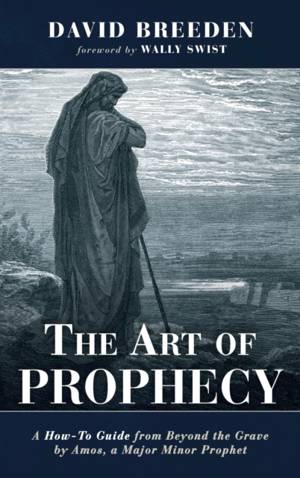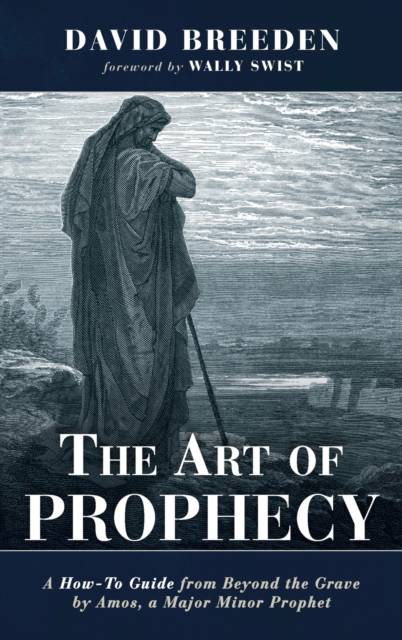
- Afhalen na 1 uur in een winkel met voorraad
- Gratis thuislevering in België vanaf € 30
- Ruim aanbod met 7 miljoen producten
- Afhalen na 1 uur in een winkel met voorraad
- Gratis thuislevering in België vanaf € 30
- Ruim aanbod met 7 miljoen producten
Zoeken
The Art of Prophecy
A How-To Guide from Beyond the Grave by Amos, a Major Minor Prophet
David Breeden
Hardcover | Engels
€ 62,45
+ 124 punten
Uitvoering
Omschrijving
This book-length poem imagines the Hebrew prophet Amos writing his memoirs from beyond the grave. Born into poverty and obscurity, Amos the shepherd and sycamore pruner faced daunting challenges in his attempts to follow what he heard as God's charge to change the social structures of his time. He had his vocation and his art, but what chance did he have against entrenched political corruption and religious hypocrisy? As Amos examines his life, his art, his message, and his failure, he recognizes the impossibilities of the trackless path out of the desert that he walked in life, and he faces the awful truth that "reality has authors." The poor do not write that reality, and Amos takes both pride and umbrage that he is recorded forever in the biblical canon as a "major minor prophet." From the comfort of the afterlife, Amos explores life's deepest questions with such companions as Laozi, King David, William Shakespeare, and Michel Foucault. Amos learns that telling the truth isn't easy or perhaps possible, even from beyond the grave. Still, he cannot avoid considering human existence and asking: Is it necessary to speak truth to power when victory is impossible?
Specificaties
Betrokkenen
- Auteur(s):
- Uitgeverij:
Inhoud
- Aantal bladzijden:
- 252
- Taal:
- Engels
Eigenschappen
- Productcode (EAN):
- 9781666702026
- Verschijningsdatum:
- 18/06/2021
- Uitvoering:
- Hardcover
- Formaat:
- Genaaid
- Afmetingen:
- 152 mm x 229 mm
- Gewicht:
- 508 g

Alleen bij Standaard Boekhandel
+ 124 punten op je klantenkaart van Standaard Boekhandel
Beoordelingen
We publiceren alleen reviews die voldoen aan de voorwaarden voor reviews. Bekijk onze voorwaarden voor reviews.











